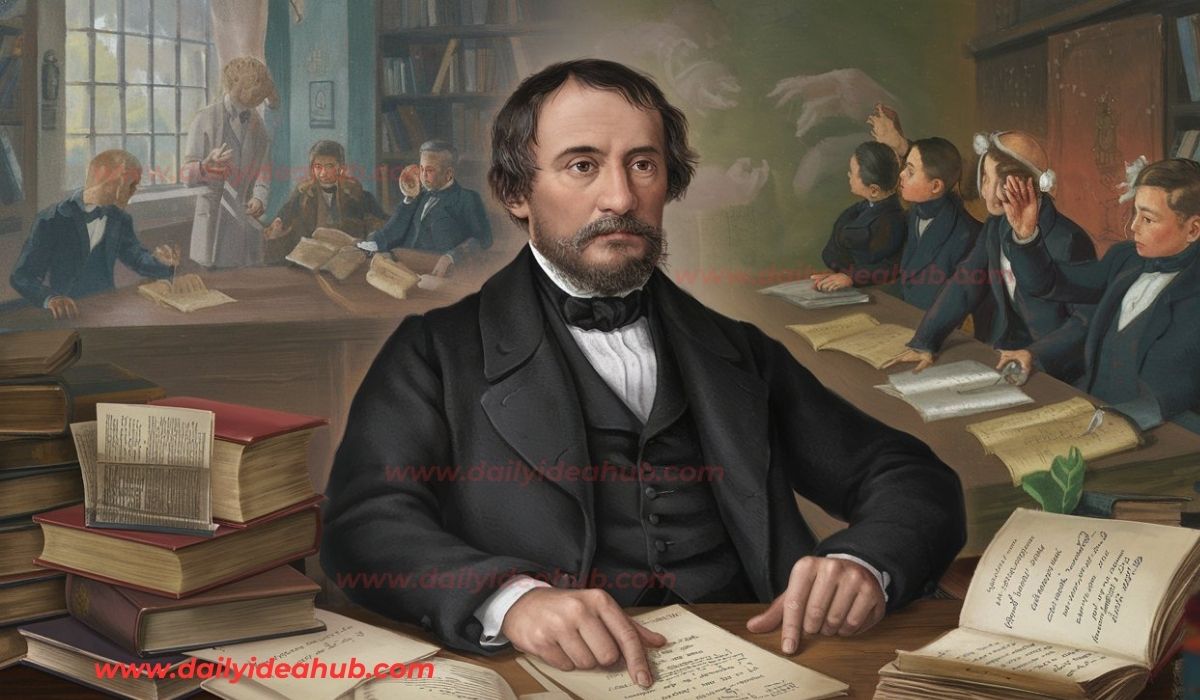
Ferdinand Berthier, a prominent figure in the history of the deaf community, remains a highly influential individual whose life and work have greatly impacted deaf education, rights, and culture. His achievements in promoting the recognition and inclusion of deaf people set a standard for advocacy that still resonates today. This article delves into the life of Ferdinand Berthier, his contributions to the deaf community, and how his legacy continues to inspire.
Table of Contents
Early Life of Ferdinand Berthier
Ferdinand Berthier was born on September 30, 1803, in Louhans, France. From birth, Berthier was deaf, but he did not allow this to impede his development. Instead, it became the driving force behind his lifelong mission to improve the lives of deaf individuals. As a young boy, Berthier attended the National Institute for Deaf-Mutes in Paris, where he was taught by Abbé Sicard, one of the pioneers of deaf education. This experience shaped Berthier’s understanding of the importance of education and communication for deaf individuals.
Education and Early Career
Berthier’s education at the National Institute for Deaf-Mutes was instrumental in shaping his future. Not only did he excel in his studies, but he also became a key figure at the institute itself. After completing his education, Berthier joined the teaching staff, becoming one of the first deaf educators at the institution. His ability to communicate and teach through sign language made him an influential advocate for the use of sign language in deaf education.
Berthier’s experience as both a student and teacher helped him recognize the challenges faced by deaf individuals. This awareness prompted him to advocate for better educational opportunities for the deaf. Over time, Berthier’s advocacy extended beyond education and into the realm of civil rights for deaf people.
Ferdinand Berthier: Advocate for Deaf Rights
One of Ferdinand Berthier’s most significant contributions was his advocacy for the rights of deaf individuals. He believed that deaf people were fully capable of leading productive lives and deserved the same opportunities as hearing individuals. At a time when many people viewed deafness as a disability that required pity or charity, Berthier’s perspective was revolutionary.
Berthier worked tirelessly to change societal perceptions of deaf individuals. He organized public events and demonstrations to raise awareness about the capabilities of the deaf community. His efforts helped shift the conversation from deafness as a disability to deafness as a cultural and linguistic minority group.
The Role of Sign Language
One of the cornerstones of Berthier’s advocacy was his belief in the importance of sign language. He argued that sign language was a legitimate language that should be respected and used in educational settings. At the time, there was a growing movement in favor of oralism, which promoted speech and lip-reading over sign language for deaf education. Berthier opposed this approach, believing that it limited the communication abilities of deaf individuals.
Through his writings and public speeches, Berthier emphasized the value of sign language as a natural form of communication for deaf individuals. He also highlighted the need for qualified deaf educators who could teach through sign language, as he himself had done.
Ferdinand Berthier’s Literary Contributions
Ferdinand Berthier was not only a teacher and advocate, but also a prolific writer. He authored numerous books and articles on the subject of deaf education and the rights of deaf individuals. His works provided a voice for the deaf community and helped raise awareness about the issues they faced.
Some of his most notable works include:
- History of the Deaf and Dumb, and of Deaf-Mutes in France – In this book, Berthier chronicled the history of deaf education in France and provided insights into the lives of deaf individuals.
- The Intellectual and Moral Education of the Deaf-Mute – This work focused on the need for comprehensive education that addressed both the intellectual and moral development of deaf students.
- Various articles on the significance of sign language and the importance of deaf educators.
Berthier’s writings remain valuable resources for understanding the history of deaf education and the development of deaf rights.
The Importance of Deaf Societies
Ferdinand Berthier was instrumental in establishing organizations that promoted the interests of the deaf community. He founded the first-ever international deaf organization, Société Centrale des Sourds-Muets de Paris (Central Society of Deaf-Mutes of Paris). This society provided a platform for deaf individuals to come together, share ideas, and advocate for their rights.
The creation of this organization was a monumental step in the formation of a global deaf community. It allowed deaf individuals to connect, discuss their experiences, and work together to improve their lives. Berthier’s leadership in this movement helped lay the foundation for the modern deaf rights movement.
Ferdinand Berthier’s Legacy
The legacy of Ferdinand Berthier continues to be felt within the deaf community and beyond. His work in promoting the use of sign language, advocating for the rights of deaf individuals, and establishing organizations that supported the deaf community set the stage for future generations of advocates.
Today, Berthier is celebrated as a pioneer of deaf culture. His efforts helped shift societal perceptions of deafness and contributed to the recognition of sign language as a legitimate and valuable form of communication.
Frequently Asked Questions (FAQs) about Ferdinand Berthier
1. Who was Ferdinand Berthier?
Ferdinand Berthier was a deaf educator, writer, and advocate for deaf rights. He is best known for his work in promoting the use of sign language and advocating for the rights of deaf individuals.
2. What were Ferdinand Berthier’s contributions to deaf education?
Ferdinand Berthier was one of the first deaf educators at the National Institute for Deaf-Mutes in Paris. He advocated for the use of sign language in deaf education and emphasized the importance of providing deaf individuals with comprehensive educational opportunities.
3. Why is Ferdinand Berthier considered a pioneer in the deaf community?
Berthier is considered a pioneer in the deaf community because of his efforts to advocate for the rights of deaf individuals, promote the use of sign language, and establish organizations that supported the deaf community.
4. How did Ferdinand Berthier’s work influence the modern deaf rights movement?
Berthier’s work laid the groundwork for the modern deaf rights movement by advocating for the recognition of sign language, organizing deaf societies, and challenging societal perceptions of deafness.
5. What was the Société Centrale des Sourds-Muets de Paris?
The Société Centrale des Sourds-Muets de Paris was the first international deaf organization, founded by Ferdinand Berthier. It provided a platform for deaf individuals to come together and advocate for their rights.
Conclusion: Ferdinand Berthier’s Enduring Impact
Ferdinand Berthier’s life and work remain a testament to the power of advocacy and the importance of education in empowering marginalized communities. His contributions to deaf education and rights helped pave the way for future generations, ensuring that deaf individuals are recognized for their abilities rather than their perceived limitations.
Through his efforts, Ferdinand Berthier demonstrated that deaf individuals are capable of achieving great things, and his legacy continues to inspire the global deaf community. His advocacy for sign language, deaf education, and civil rights serves as a reminder of the importance of inclusion and equality for all.
Table: Key Contributions of Ferdinand Berthier
| Contribution | Description |
|---|---|
| Deaf Education Pioneer | One of the first deaf educators at the National Institute for Deaf-Mutes in Paris. |
| Advocate for Deaf Rights | Championed the rights of deaf individuals and promoted their inclusion in society. |
| Promoter of Sign Language | Emphasized the importance of sign language as a natural form of communication. |
| Founder of Deaf Organizations | Established the Société Centrale des Sourds-Muets de Paris, the first international deaf organization. |
| Prolific Writer | Authored numerous books and articles on deaf education and the rights of deaf individuals. |



